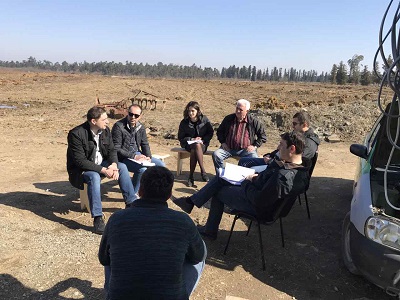- Details
On Tuesday April 11, ISET hosted Warwick University Professor Omer Moav. Professor Moav delivered a profoundly interesting lecture to the ISET Community about the work that he and his colleagues have worked on together, specifically a revolutionary hypothesis about the emergence of social and political hierarchies in early agrarian societies. Contrary to some of the established theories (e.g. by Karl Marx and Jared Diamond), Moav and his colleagues argue that hierarchies (and state structures) emerged not as a result of increased productivity per se (the traditional Marxian thesis is that the ruling classes emerged whenever and wherever agriculture became sufficiently productive in order generate surpluses). Instead, they argue that social and political hierarchies are causally linked to the cultivation of cereals (e.g. wheat, rice, and maize). Furthermore, storage itself is correlated with hierarchy, and cereals are a good storable staple.
- Details
On March 7-8, ISET’s ENPARD team with an M&E coordinator from CARE, took a field trip to Adjara, hosted by UNDP Adjara, which is one of the implementer of the ENPARD project (agricultural cooperative development across Georgia). UNDP Adjara recently became involved in the Annual Cooperative Survey, which has been carried out from the beginning of the implementation of the ENPARD project by other ENPARD implementer consortia (Care, Oxfam, Mercy Corps and PIN). The objective of the visit was to explain the details of the questionnaire for the survey to the local team.
During these two days, ISET and local team members met representatives from cooperatives in the region. The sectors covered by these cooperatives are trout, berries, wine production, as well as vegetable production in greenhouses.












